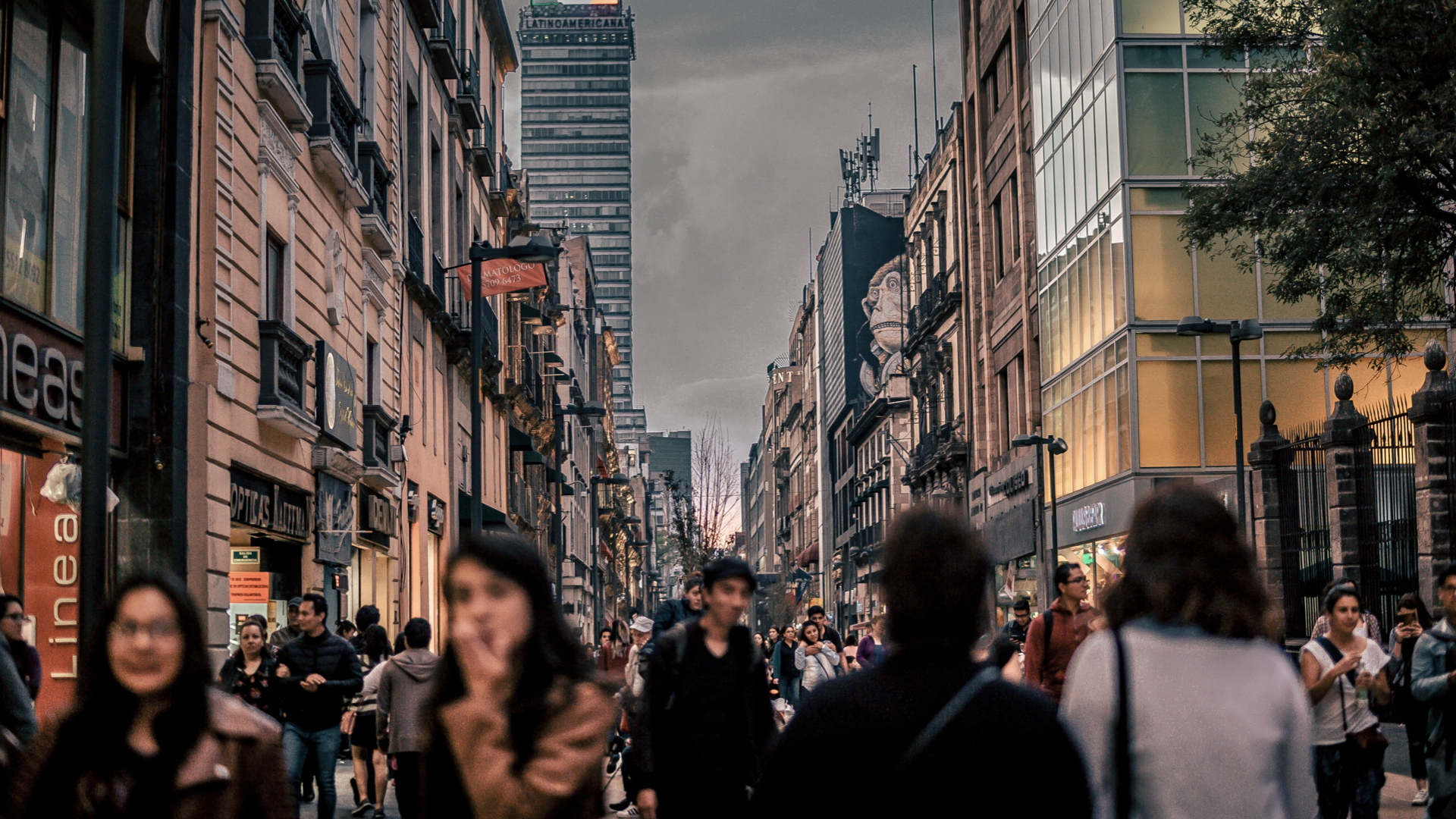Democracy is in retreat almost everywhere. This year is certain to become the 16th consecutive year when the U.S.-based nonprofit Freedom House will record an overall decline in its measures of democracy in countries around the globe. In the United States, the January 6 riot at the U.S. Capitol revealed the disregard some Republican partisans have for election results and democratic rules, and the party has taken even more anti-democratic steps since then, passing state-level laws to suppress voting and install partisan election officials. Meanwhile, China is cracking down on civil liberties in Hong Kong and supporting the rise of authoritarianism globally. Both China and Russia are hacking into critical infrastructure in Western countriess, for espionage and for ransom. In Russia, President Vladimir Putin’s party brazenly falsified the results of recent national elections. Even in democratic countries, leaders have eroded democratic institutions and enacted authoritarian laws in India, Brazil, Turkey, and Tunisia. Is democracy losing to authoritarianism?
Fredo Arias-King leads the board of directors of the Casla Institute, a Prague-based nonprofit that shares the lessons of post-communist transformation with reformers in Latin America, and a speaker at this week’s Oslo Freedom Forum in Miami. Raised in Mexico, he’s written extensively on democratic transitions in Latin America and Europe. Despite all the turmoil around the world today, Arias-King is confident in the long-term prospects for democracy. In his view, the democratic backsliding we see in many countries, such as Poland and Hungary, is only a temporary setback. From a broader perspective, he says, many of these places were totalitarian or authoritarian states not long ago, so their troubles today shouldn’t call into question the longer arc toward greater democratization. As Arias-King sees it, today’s problems are often rooted in economic insecurity or migration caused by rapid globalization, as extremists on the left and right exploit nationalist feelings or other emotions for political gain.
Michael Bluhm: How worried are you by the erosion of democracy globally?
Fredo Arias-King: I have a lot of confidence in democracy. I take a longer view. Alexis de Tocqueville said democracy is like a tide that will recede but come back much stronger. So even when it seems that everything is lost—and in many periods in history, in many geographies, everything has seemed lost—then suddenly, a waves comes and more follow.
In the interwar period of the early 20th century, between World War I and World War II, a hodgepodge of small- and medium-sized nations appeared on the map of Europe after the collapse of the Ottoman, Austro-Hungarian, Russian, and German empires. There was only one democracy east of Switzerland: the Czechoslovakia of President Tomas Masaryk. Today, there are 14 or 15 democracies east of Switzerland, according to even those slightly pessimistic reviews by Freedom House. I call that progress.
Whether or not you like Hungarian Prime Minister Viktor Orban, Hungary is still a democracy. Could be “free,” could be “semi-free,” but just very recently—historically, in the blink of an eye—it was absolutely not free. So I see Tocqueville’s perspective as wise: Democracy always comes back stronger. I’m a lot more optimistic than others tend to be.

Bluhm: Are there common factors in the erosion of democracy in different parts of the world? Or a common path for building a successful democracy out of an undemocratic state? Or does it depend on context?
Arias-King: It depends on context. Is there a universal theory of everything for democracy, whether it goes forward or backward around the world? I sincerely doubt it. The closest thing to anything that’s universal is the classic [Seymour Martin] Lipset hypothesis that when a country under a regime of any kind—dictatorial, authoritarian, feudal—reaches a certain level of income, then there’s a transition to democracy, for reasons yet to be understood very well. Lipset took from Aristotle, who said in ancient Athens that you need a middle class—you need people to feel a certain sense of security, both personal and societal, for them to practice democracy.
Bluhm: You’ve been studying post-communist Europe for 30 years. Why is democracy breaking down in Poland, Hungary, and Slovenia?
Arias-King: I wouldn’t mix a common cold with a Covid pandemic. What we had under communism was an acute lack of democracy. But today’s Hungary and Poland, I would compare them to a very light common cold, because you know it’s going to end.
I would not mix up a common cold with a Covid pandemic. What we had under communism was an acute lack of democracy. But today’s Hungary and Poland, I would compare them to a very light common cold, because you know it’s going to end.
In Poland, they’ve done things I don’t approve of, but I wouldn’t go so far as to call them authoritarian regimes. A lot of the critics of both Orban and [Jaroslaw] Kaczynski [Poland’s deputy prime minister and the leader of its most powerful political party] in the organs of the European Union in Brussels have often applied a double standard when it comes to what they consider veering from democracy when it’s right-wing versus left-wing. When Syriza was in power in Greece, when an openly communist president was elected in Cyprus, the reprimands from the EU never came. All they preached was patience and understanding.
There are factors that Brussels refuses to consider, which may explain some of the behavior by Viktor Orban. Orban was one of the leading anti-communist revolutionaries in that region. They criticize the fact that he is—just like in Poland—against the judiciary. Brussels sees that they’re destroying one of the three branches of government.
But in all the post-communist world, unfortunately, the lustration of the previous elites, including in the judicial system, was either incomplete or nonexistent. A lot of the problems we see in Eastern and Central Europe are because of this lack of elite turnover. These judges aren’t judges; they’re lackeys of the former regime; they’re open to potential blackmail or beholden to old boys’ networks. Nobody ever asked them to leave.

That created a serious sense of malaise not during the transition, but later, when it became evident that a lot of these judges were ruling on behalf of murky interests from their time during the communist dictatorship. Brussels doesn’t take that into account at all, despite the fact that the Parliamentary Assembly of the Council of Europe passed a resolution recommending lustration in post-communist regimes. That’s one defect in this jumping to conclusions in the case of Hungary.
Another has to do with the wave of people fleeing the Middle East a couple of years ago. Orban put razor-sharp fencing around Hungary. The people of Hungary genuinely supported Viktor Orban in taking exception to the dictates of Angela Merkel, the French president, and Brussels—who are not accountable to Hungarian voters. Viktor Orban is accountable to Hungarian voters, and they did not want to take on refugees from the Middle East. Brussels also doesn’t take that into account.
Bluhm: In addition to the things you mentioned, Orban has also curtailed freedom of speech, and he’s taken away the licenses of opposition media outlets. He has moved away from democracy by moving his country closer to Russia and China. Speaking about Muslim refugees, he described them as “invaders” and “poison.”
Arias-King: Very true, point taken. However, his critics use a double standard when it comes to socialist or left-leaning regimes in Eastern Europe that are consolidating power through extra-constitutional means.
The people of Hungary genuinely supported Viktor Orban in taking exception to the dictates of Angela Merkel, the French president, and Brussels—who are not accountable to Hungarian voters. Viktor Orban is accountable to Hungarian voters, and they did not want to take on refugees from the Middle East.
In electoral politics, people reward standing up for the small nation. Whether you like that or not, voters decide. In the Czech Republic, during the Jiri Drahos–Milos Zeman presidential debate, the question inevitably came up about Muslim refugees flooding Europe. Drahos did not know what to answer. Zeman was unequivocal. He said, If we allow in those people, the beautiful faces of our women will be all covered up in those awful burkas. Can we call that authoritarian? No, it’s electoral politics, and Zeman won, Drahos lost—it’s that simple.
I would also focus on the opposition. Civic Platform, in Poland, is in disarray, as are Orban’s opponents in Hungary, both in the liberal camp as well as in the socialist camp.
We should be very cautious in assigning the term authoritarian. You can say they’re attempting authoritarianism, they’re corrupt, or whatever. But we have to be careful with a label because if we’re not, that label will become diluted, and then we will have fewer weapons when a true authoritarian emerges.
Bluhm: How would you compare the problems of democratization in post-communist Europe with the challenges in Latin America?
Arias-King: Different laws apply to Latin America. Some of the great thinkers about democracy in Latin America, such as Mario Vargas Llosa, Carlos Alberto Montaner, or Mario Vargas Llosa’s son Alvaro Vargas Llosa—if I were to sum up the wisdom of these people: Latin America is in a stage of historical development where our republics behave like adolescents, and that’s a real problem. Some of them are charming adolescents, some of them are obnoxious and dangerous.

The common denominator of our cultures is, as Mario Vargas Llosa once observed quite correctly, how similar we all are, despite being thousands of miles apart, from Mexicali to Tierra del Fuego.
Which explains why things come in waves in Latin America. The enemies of democracy know this, and they operate on the basis that if they conquer some key regions of Latin America, their project could spread—there are no cultural barriers among us. Brazil may present a slight language barrier, but that’s it.
There’s also the tug of war between radically different projects of state and nation building, dramatized to the extreme. The clearest example is Chile, when they were debating about returning to democracy, in the late ‘80s. There was this black-and-white contrast between those who did not want democracy and those who did not want free markets.
One of the blessings of the United States and other very lucky countries—like Canada or European countries—is that there is no inherent contradiction between those who want democracy and those who want a market economy. All that energy is spent in Latin America trying to hack each other to pieces over these basic questions. Instead, all that time and energy in the United States, Canada, and other lucky countries is spent talking about, how much do we spend on health care? How much should we tax the rich?
In electoral politics, people reward standing up for the small nation. Whether you like that or not, voters decide.
The tragedy of Latin America is that we only have, it seems sometimes, those two extremes, either these futile-minded conservative forces or these radical leftists that would impose the Cuban or Venezuelan model. There are not enough classical liberals in the middle.
Sometimes it does feel that you have a choice: It’s either democracy or the market. And so those forces trying to modernize Latin America have to neutralize the ideological, romanticized left that puts up posters of Fidel Castro all over Mexico City or Buenos Aires; and those mercantilist, cynical, feudal conservatives, they want monopolies, and to exploit the poor, and to destroy nature for their own short-term benefit.
There’s not enough civic-mindedness. Which is made worse by the fact that we all have presidential systems. That famous essay by Juan Linz (“The Perils of Presidentialism”) argued that presidential systems are not very good at holding democracy because it’s this winner-take-all mentality. When you have a parliamentary system, they all have to haggle to form a government. When no party wins an outright majority, they have to form a coalition.
As to parallels with Central and Eastern Europe, in all the success stories in the post-communist world, they have a few things in common, but every last one of them is a parliamentary system. Everywhere else, the presidential system imposed mostly the elites of the previous regime: Boris Yeltsin, Vladimir Putin, Islam Karimov, Nursultan Nazarbayev. Those transitions didn’t go so well—economically, politically, or socially.

If you read that essay by Juan Linz, you’re going to realize why democracy has had a difficult time taking root in Latin America. In theory, it should even be worse than it is.
Bluhm: You discuss structural and ideological obstacles to democratization. Are there any economic reasons behind the rollback of democracy? Rising income inequality and stagnant wages, for example, have created a feeling among citizens in many countries that the system doesn’t work for them.
Arias-King: The rapid pace of globalization has presented a real challenge. One of the many negative effects of globalization is that it challenges the basic beliefs and the sense of belonging of a lot of the people who feel left behind.
Even if they’re buying a chicken in their local supermarket at a fraction of the work hours needed to buy the same chicken in Cuba or Venezuela, they’re not thinking in those terms. They’re thinking, Somebody up there is taking from me. Somebody up there isn’t giving me my fair share, because my wages feel the same. Even if you prove to them that 10 years ago, they would have needed to work twice as long as they would need to work to buy the same chicken today, they don’t care. It’s all about feelings, and what feels right is right in politics, unfortunately—especially in today’s politics, with social media.
There are all these factors in globalization that attack the sense of belonging, in time and space, of millions and millions of people. They believe that globalization only benefits the elites.
Globalization has brought incredible benefits, but it has also brought challenges to democratic governance. Before, parties would compete based on who could get closer to the center. At some point, political entrepreneurs who are very intelligent or very perceptive—or just lucky—realized that they could do the opposite. They could go to the extreme and still have political success.

